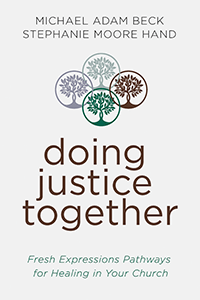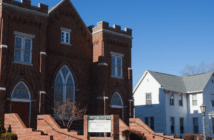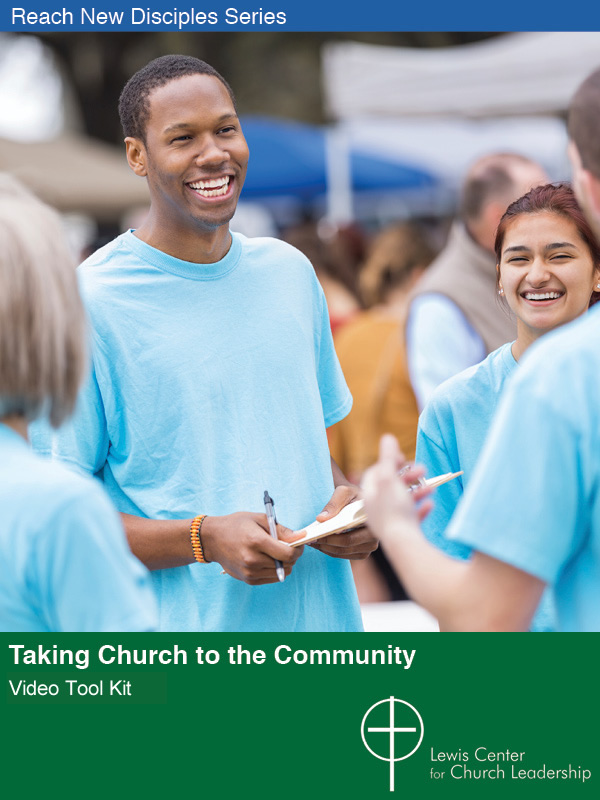Michael Adam Beck and Stephanie Moore Hand say that if we take from Jesus’s Great Commission only the call to “make disciples” we are omitting one small but important word. GO! The Great Commission isn’t about bringing people into the church building and properly Christianizing them. It’s about a community of learners, going out together, becoming, and making disciples as they journey through the normal trials and joys of life.
Many across the centuries have interpreted Jesus’s call to “make disciples” as bringing people into the church building and properly Christianizing them. This is not Jesus’s instruction at all. The clarion call to make disciples is the Great Commission found in Matthew 28:18 – 20:
And Jesus came and said to them “All authority in heaven and on earth has been given to me. Go therefore and make disciples of all nations baptizing them in the name of the Father and of the Son and of the Holy Spirit and teaching them to obey everything that I have commanded you. And remember, I am with you always, to the end of the age.”
If we take from this only the call to “make disciples” one small but important word is missing. GO! The Greek word we translate as “go” is more accurately understood to mean “pursue the journey on which one has entered” or “to continue on one’s journey.” It might be understood to mean, “as you go on the journey … make disciples.”
That one little absent word can mean a big change in how people understand their mission. Churches across the denominational spectrum have translated discipleship in terms of butts in pews, nickels and noses, and people attending Bible studies or Sunday school at a building that the congregation usually owns. This is a far cry from the intent of the Great Commission. Jesus envisions a community of learners, going out together, becoming and making disciples as they journey through the normal trials and joys of life. Discipleship is not something that is only happening when we are tucked safely away in the confines of a church compound. Discipleship is happening every moment, every day, and in every encounter of our lives.
“Make” disciples?
Another sometimes forgotten aspect is Jesus’s promise to be with us always to the end of the age. Here’s the rub about “making” disciples: we can’t actually do it. If we think we can make disciples, we are set up to fail in a massive way. Only the Holy Spirit can make disciples. No person or church can do that. Yet we often act as if we are alone in our efforts, as if Jesus is not always present with us. We can easily slip into the dangerous belief that we somehow bring Jesus with us, or that the Holy Spirit arrives on the scene only after we’ve arrived ourselves. In this way of thinking, the focus of the action is on us, our efforts, our processes, and our ingenuity.
God is working in every space and every human life long before we get there. God is working in us in ways we are often unaware of. Only the Holy Spirit can do the heavy lifting actually involved in disciple formation. The Spirit woos, awakens, convicts, encourages, and empowers receptive persons to live a transfigured life.
So, what is our role? Perhaps it’s creating spaces, processes, and environmental conditions that lend themselves to the Spirit’s transformative work.
Discipleship as multidimensional
Several common ideas make discipleship seem one-dimensional.
1. The pervasive view of discipleship as imparting biblical knowledge in a classroom or sanctuary setting. Instruction is one element of discipleship, teaching us to bend our lives to the truth of scripture, but there is much more.
2. The emphasis and elevated importance of our own actions rather than the Spirit’s work. In this paradigm, we run the risk of playing God.
3. Our eagerness to focus on the Great Commission before we have spent time with the Great Commandment “to love God and neighbor.” We believe these are sequenced in the Bible in this order for a reason. Jesus teaches the disciples to love God and each other under his tutelage through on-the-job training, before sending them out to all the world.
4. The tendency to see the Christian life as centered in the church facilities, rather than growing as disciples, first, at home with the family, second, at work with colleagues; and third, in places with friends. We too often forget the mobile nature of Jesus’s work with the disciples, whom he sends out to do ministry with people. He does not tell the disciples to focus on attracting people to the church building.
Cultivating people who look like Jesus
What if instead we were committed to helping people grow in a life of love and faith, and equally committed to how that works out of the world through social justice ministries? The pathway we suggest begins with a focus on working with a small group of people, then explores how to share power, how to cultivate justice-oriented communities, and how to affect the oppressive structures of a racialized society.
When we focus on cultivating people who look like Jesus, those people will transform the world through love.
 Doing Justice Together: Fresh Expressions Pathways for Healing in Your Church by Michael Adam Beck and Stephanie Moore Hand (Abingdon Press, 2024). The book is available at Abingdon Press, Cokesbury, and Amazon.
Doing Justice Together: Fresh Expressions Pathways for Healing in Your Church by Michael Adam Beck and Stephanie Moore Hand (Abingdon Press, 2024). The book is available at Abingdon Press, Cokesbury, and Amazon.
The Doing Justice Together: Background and Context e-book designed to support and document the ideas and practices found in the main book is available as a free, downloadable PDF.
Related Resources
- Doing Justice Together featuring Michael Adam Beck and Stephanie Moore Hand — Leading Ideas Talks podcast video | Podcast audio version | In-depth interview
- 8 Lessons from Jesus on How to Engage People and Help Them Grow as Disciples by Phil Maynard And Eddie Pipkin
- Are You Teaching People about Faith? Or How to Practice It? by Johannah Myers
Images by macrovector and vectorpocket on Freepik







